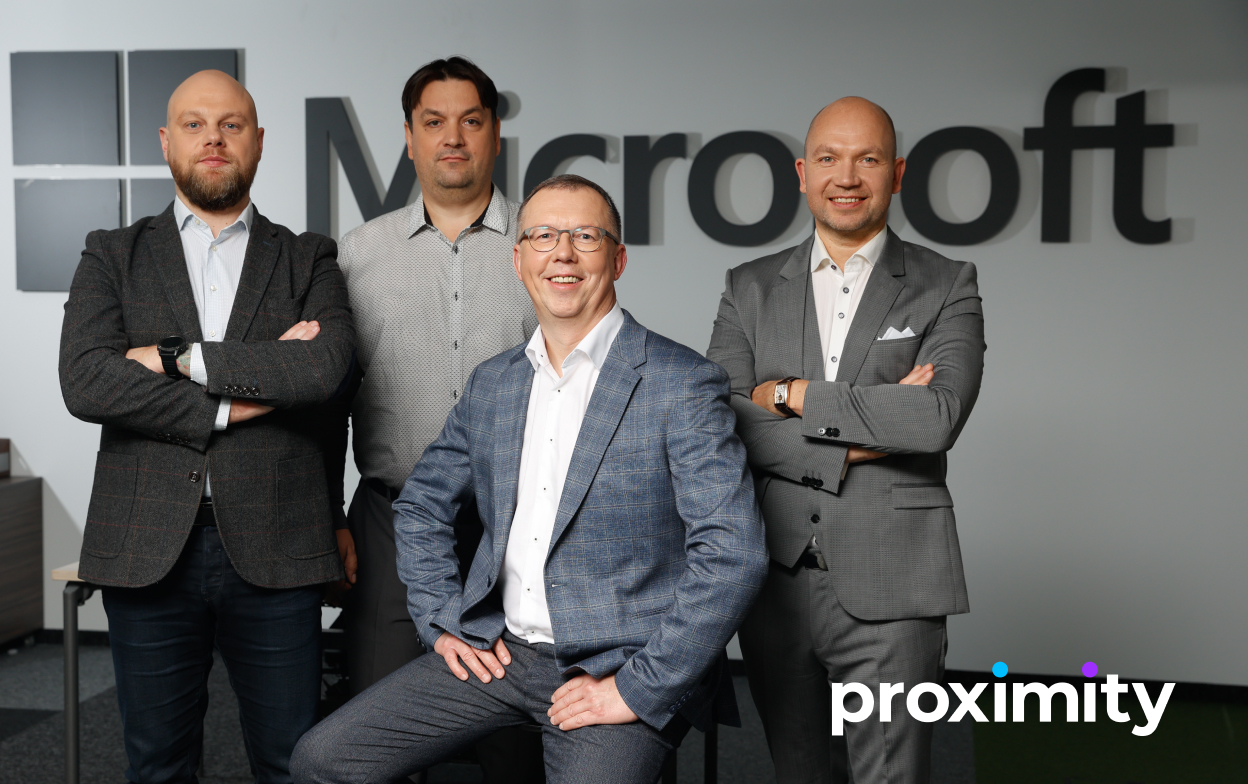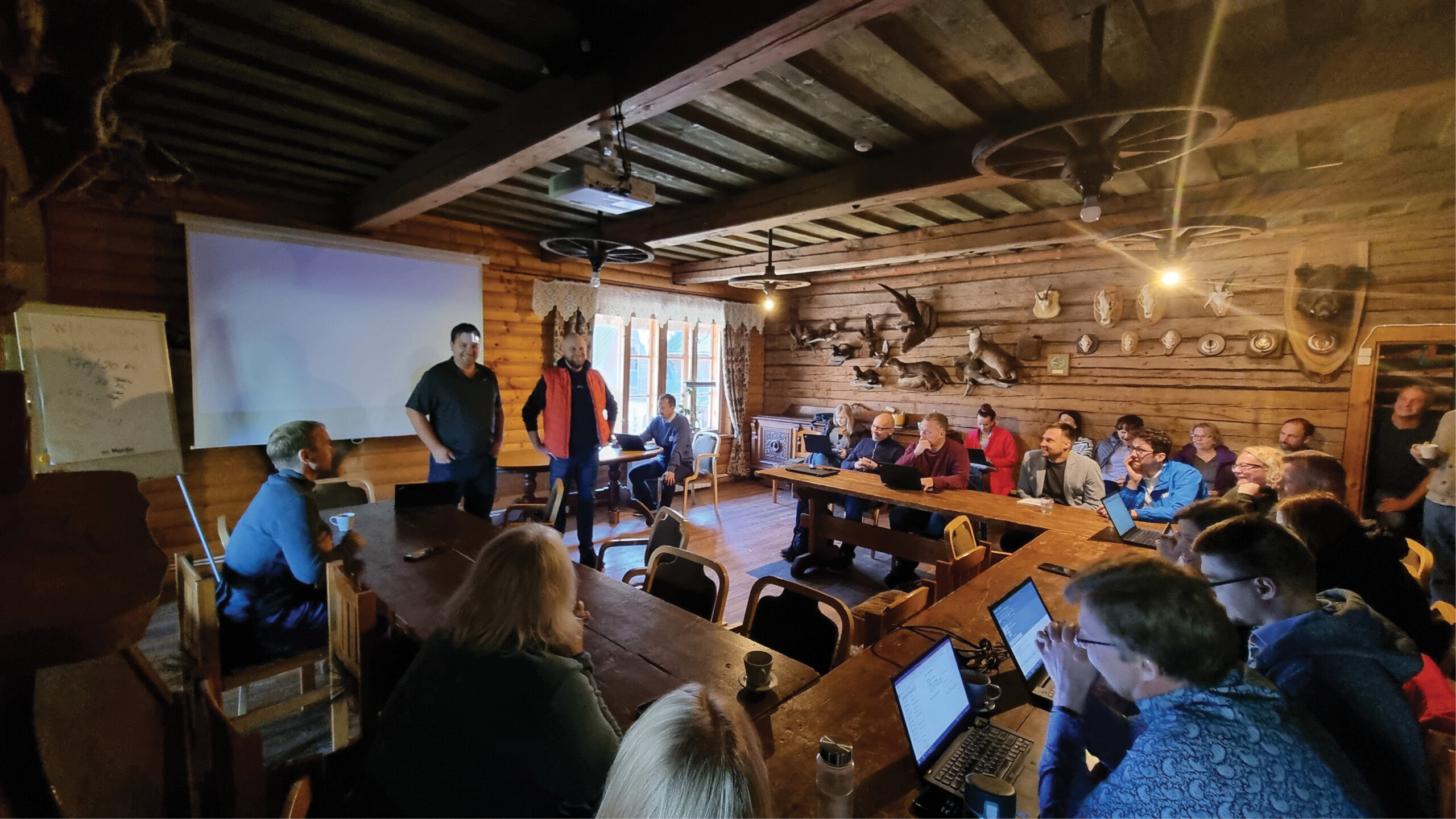Why is co-operation between the Baltic States in business technology becoming more important?
Source: Äri-IT Sügis 2024
Author: Marek Maido, BCS Itera Marketing and Sales Manager
What or who is Proximity Group?
Expectations of Baltic companies in implementing technological change
Currently, more than 4,000 Latvian and 1,000 Lithuanian companies operate in Estonia, while more than 1,200 Estonian companies are present in Latvia and more than 600 in Lithuania. Additionally, hundreds of subsidiaries and affiliates of multinational companies are spread across the Baltic States. The number of trans-Baltic companies has grown significantly over the past decade, bringing new challenges such as the harmonisation of management and culture of transnational companies, consolidation of business processes, technological solutions and group reporting.
The organic growth and expansion of companies have driven an active search for international IT solutions that meet group-wide needs and offer the functionality to address the challenges and developments mentioned above.
As one BCS Itera customer and multinational company manager once noted, challenges and technological solutions are closely interconnected. One key reason for implementing Business Central as an enterprise resource planning (ERP) solution and Dynamics Sales as a customer relationship management (CRM) solution was to harmonise service and operational cultures across different countries. Technology is a powerful tool for aligning processes and actions within specific frameworks.
When it comes to technological options, it is not only the capability of the solution that matters, but also the network of partners, ie the partner in each country that offers support and necessary expertise in the local language.
Large trans-Baltic companies prefer having a single point of contact for technological change rather than searching for a partner in each country. In other words, if you want to implement technological changes across all three Baltic countries and your head office is in Estonia, you would ideally work with a partner who can handle the implementation in Latvia and Lithuania as well.
The third important criterion is the coverage of the entire technology chain, ie the presence of ERP, human resource management (HRM), CRM and business intelligence (BI) solutions in the product portfolio. As more companies require all these solutions, there is a growing preference for having them provided by a single, strong leading partner. This is because these solutions must interact with each other, ie be part of the same ecosystem, but with multiple partners this process is neither affordable nor optimal.
Proximity Group
More than 15 years ago, three of the Baltic region’s leading ERP companies – BCS Itera from Estonia and Finland, Elva Baltic from Latvia and Softera Baltic from Lithuania – joined forces. These are leading consulting companies implementing ERP, HRM, CRM and BI solutions in every country, with a combined team of nearly 400 industry professionals. It is currently the largest industry cluster in the Baltics, in terms of team size, competence and customer base.
Approximately 15 years ago, we were united by our shared goal to offer solutions that provide competitive advantages to medium-sized and large companies, as well as by our common value proposition and methodology for project implementation. Over the years, we have completed a number of joint projects and held annual strategy days to enhance our collaboration and improve the customer experience.
This year, we formalised our long-standing partnership under the unified name Proximity Group. Our goal is to clearly communicate our commitment to being close to our customers and to each other, both in terms of methodology and solutions, and thereby deliver the same value and customer experience in every country – hence the name Proximity.
ERP, HRM, CRM and BI equals AI
ERP, HRM, CRM, and BI – these terms and solutions are likely familiar to every manager today.
As one of our customers, the head of a listed food industry, puts it: ‘We are all IT companies that are, among other things, engaged in manufacturing, trade or business services. This is our current paradigm, whether we like it or not.’
For the last two to three years, we have been talking about the rise of the AI era and its rapidly growing impact. While the exact implications for businesses and how it will influence our competitiveness remain uncertain, one thing is clear: the quality of data, our ability to analyse it, and data-driven process management and decision-making will form the foundation of our future competitiveness. This is where ERP, HRM, CRM and BI come into play. Without these systems and their integration, we will not have quality data and cannot talk about AI and greater innovation in the company.
We can confidently say that Proximity Group offers its expertise and support in all three Baltic States, as well as in Finland and other parts of Europe, helping you take the next important steps in innovation for your company.


